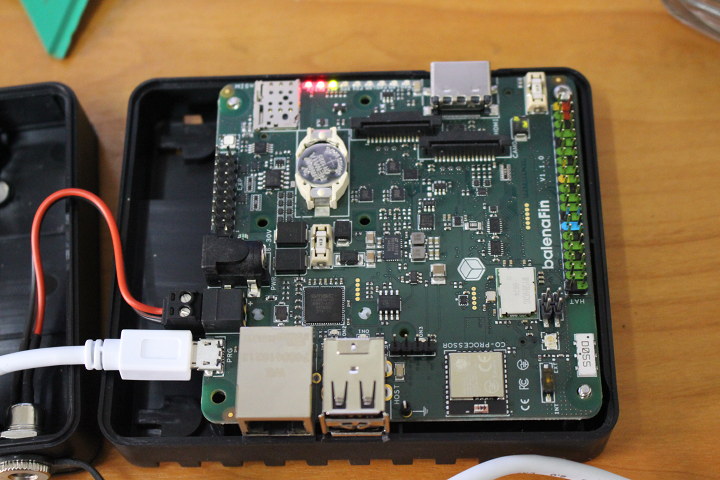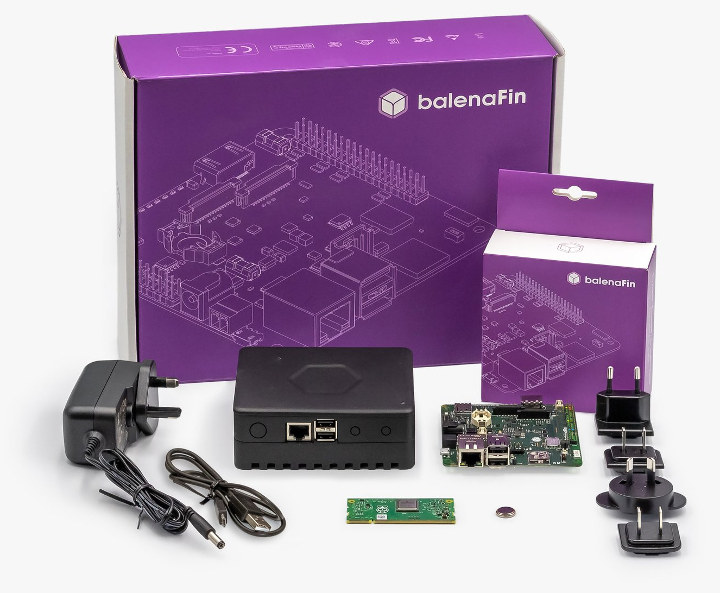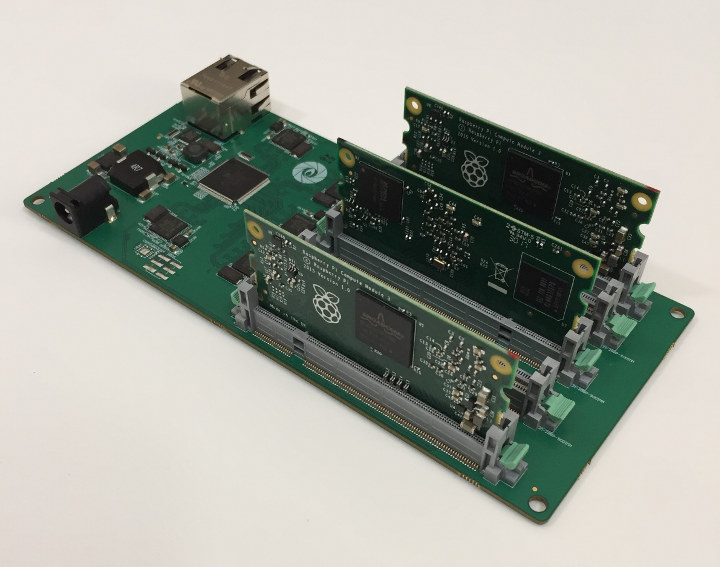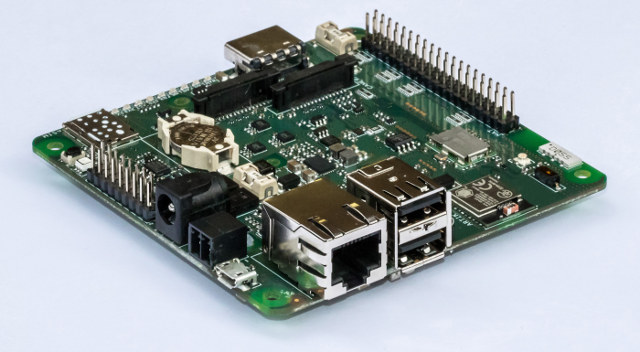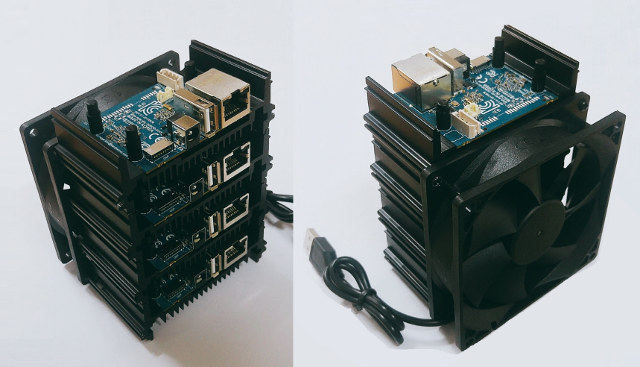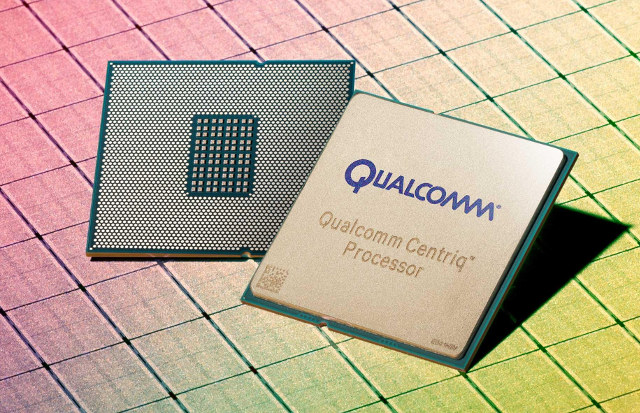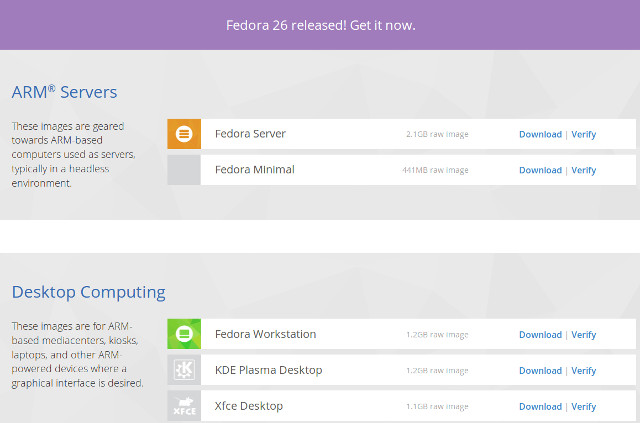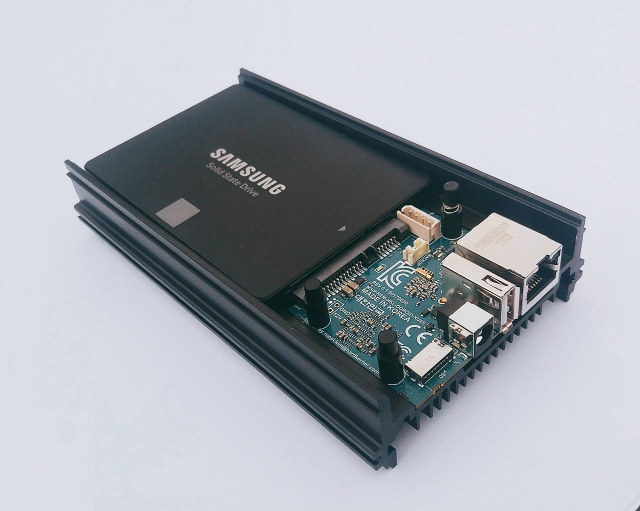balena Fin is a carrier board for Raspberry Pi Compute Module 3/3+ designed specifically for industrial applications leveraging fleet management services provided by Balena. I received balenaFin developer kit last month, and in the first part of the reviewed shows how to assemble the kit. I’m now had time to spend more time with the kit, as well as BalenaOS Linux based operating system optimized for running Docker containers on embedded devices, and balenaCloud services to manage a fleet of devices from a web dashboard. I’ve mostly followed the instructions in the getting started guides here and there, and will document what I had to do to prepare the image, flash it to the board, and load a sample docker application locally, and through balenaCloud. Downloading and Configuring BalenaOS for balena Fin You’ll find BalenaOS in the download page. While we are using hardware based on a Raspberry Pi Compute […]
balenaFin Raspberry Pi CM3+/Lite Developer Kit Launched for $179 and Up
Balena.io – previously known as resin.io – first unveiled Resin.io Project Fin in March 2018. The carrier board for Raspberry Pi CM3L was designed with the aim of easing the management of fleets of connected devices thanks to ResinOS operating systems and the ability to deploy apps packaged in containers through their balenaCloud service. The project had been renamed to balenaFin a little while ago, and the company has now announced availability of balenaFin 1.1 developer kit with various improvements including support for PoE, dual camera, and Raspberry Pi CM3+/Lite module. balenaFin v1.1 carrier board specifications with improvements highlighted in bold: Supported SoM Raspberry Pi Compute Module 3 Lite with Broadcom BCM2837 quad-core ARM Cortex A53 processor at 1.2GHz, 1GB RAM Raspberry Pi Compute Module 3+/Lite with Broadcom BCM2837B0 quad-core ARM Cortex A53 processor at 1.2GHz, 1GB RAM Storage – 8, 16, 32, or 64 GB industrial grade eMMC 5.1 […]
MiniNodes Raspberry Pi 3 CoM Carrier Board Takes up to 5 Compute Modules 3
Mininodes is known for their hosting services based on Arm development boards such as Cubieboard2, 96Boards Hikey, or Raspberry Pi 3, but the company unveiled their own hardware platform at Arm TechCon 2018 with miniNodes Raspberry Pi CoM (Computer-on-Module) carrier board that takes up to five Raspberry Pi Compute Modules 3. Beside the five sockets for CM3 / CM3L modules, the carrier board is also equipped with a gigabit Ethernet switch and RJ45 connector, as well as a DC jack to power the whole setup. The white round logo on the board most certainly means mininodes designed the board with Gumstix Geppeto web platform that allows you to fairly easily design your own custom boards in a web browser without having to draw schematics, and then handle the PCB layout. The company explains the Raspberry Pi 3 CoM Carrier Board can be used to provide edge compute capacity in remote […]
BalenaFin is an Industrial Carrier Board for Raspberry Pi CM3L Module Designed for Fleets of Connected Devices
[Update January 2019: Resin.io Project Fin has been renamed to BalenaFin, I have not changed the rest of the article] Resin.io is a both a company and a software platform that includes device, server, and client software to get code securely deployed to a fleet of devices. Devices are setup to run ResinOS, and to deploy you app, you just need to push the code to resin.io build servers, where it will be packaged into containers and delivered to your fleet of boards. So far, resin.io relied on existing hardware platforms like Raspberry Pi 3, BeagleBone Black, or Intel NUCs, but they’ve now decided to launch their first hardware with Project Fin that takes a Raspberry Pi Compute Module 3 Lite, is hardened for field deployment use cases, and adds some of most commonly requested hardware features such as variable supply voltage support, RTC, and cellular connectivity (via mPCIe card). […]
ODROID-MC1 Quad Board Cluster Launched for $220
Hardkernel teased us with ODROID HC1 Home Cloud server, and ODROID MC1 cluster last August with both solutions based on a cost down version of ODROID-XU4 board powered by Samsung Exynos 5422 octa-core Cortex-A15/A7 processor. ODROID-HC1 Home Cloud server was launched shortly after in September for $49. It took a little longer than expected for the cluster to launch, but ODROID-MC1 (My Cluster One) is finally here with four ODROID-XU4S boards, and a metal case with a cooling fan. The solution is sold for 264,000 Wons in South Korea, and $220 to the rest of the world. ODROID-MC1 cluster specifications: Four ODROID-XU4S boards with SoC – Samsung Exynos 5422 quad core ARM Cortex-A15 @ 2.0GHz quad core ARM Cortex-A7 @ 1.4GHz with Mali-T628 MP6 GPU supporting OpenGL ES 3.0 / 2.0 / 1.1 and OpenCL 1.1 Full profile System Memory – 2GB LPDDR3 RAM PoP Network Connectivity – 10/100/1000Mbps Ethernet […]
Qualcomm Centriq 2400 ARM SoC Launched for Datacenters, Benchmarked against Intel Xeon SoCs
Qualcomm Centriq 2400 ARM Server-on-Chip has been four years in the making. The company announced sampling in Q4 2016 using 10nm FinFET process technology with the SoC featuring up to 48 Qualcomm Falkor ARMv8 CPU cores optimized for datacenter workloads. More recently, Qualcomm provided a few more details about the Falkor core, fully customized with a 64-bit only micro-architecture based on ARMv8 / Aarch64. Finally, here it is as the SoC formally launched with the company announcing commercial shipments of Centriq 2400 SoCs. Qualcom Centriq 2400 key features and specifications: CPU – Up to 48 physical ARMv8 compliant 64-bit only Falkor cores @ 2.2 GHz (base frequency) / 2.6 GHz (peak frequency) Cache – 64 KB L1 instructions cache with 24 KB single-cycle L0 cache, 512 KB L2 cache per duplex; 60 MB unified L3 cache; Cache QoS Memory – 6 channels of DDR4 2667 MT/s for up to 768 […]
Fedora 26 Supports Single “Unified” OS Images for Multiple ARM Platforms
The decision to use device tree in Linux occurred several years ago, after Linus Torvalds complained that Linux on ARM was a mess, with the ultimate goal of providing a unified ARM kernel for all hardware. Most machine specific board files in arch/arm/mach-xxx/ are now gone from the Linux kernel, being replaced by device tree files, and in many case you simply need to replace the DTB (Device Tree Binary) file from an operating system to run on different hardware platforms. However, this is not always that easy as U-boot still often differ between boards / devices, so it’s quite frequent to distribute different firmware / OS images per board. Fedora has taken another approach, as the developers are instead distributing a single Fedora 26 OS ARMv7 image, together with an installation script. Images for 64-bit ARM (Aarch64) are a little different since they are designed for SBSA compliant servers, so […]
Hardkernel to Launch Stackable $49 ODROID-HC1 Home Cloud & $200 ODROID-MC1 Cluster Solutions
Hardkernel ODROID-XU4 board is a powerful – yet inexpensive – ARM board based on Exynos 5422 octa-core processor that comes with 2GB RAM, Gigabit Ethernet, and a USB 3.0 interface which makes it suitable for networked storage applications. But the company found out that many of their users had troubles because of bad USB cables, and/or poorly designed & badly supported USB to SATA bridge chipsets. So they started to work on a new board called ODROID-HC1 (HC = Home Cloud) based on ODROID-XU4 design to provide a solution that’s both easier to ease and cheaper, and also includes a metal case and space for 2.5″ drives. They basically remove all unneeded features from ODROID-XU4 such as HDMI, eMMC connector, USB 3.0 hub, power button, slide switch, etc… The specifications for ODROID-HC1 kit with ODROID-XU4S board should look like: SoC – Samsung Exynos 5422 quad core ARM Cortex-A15 @ 2.0GHz […]


